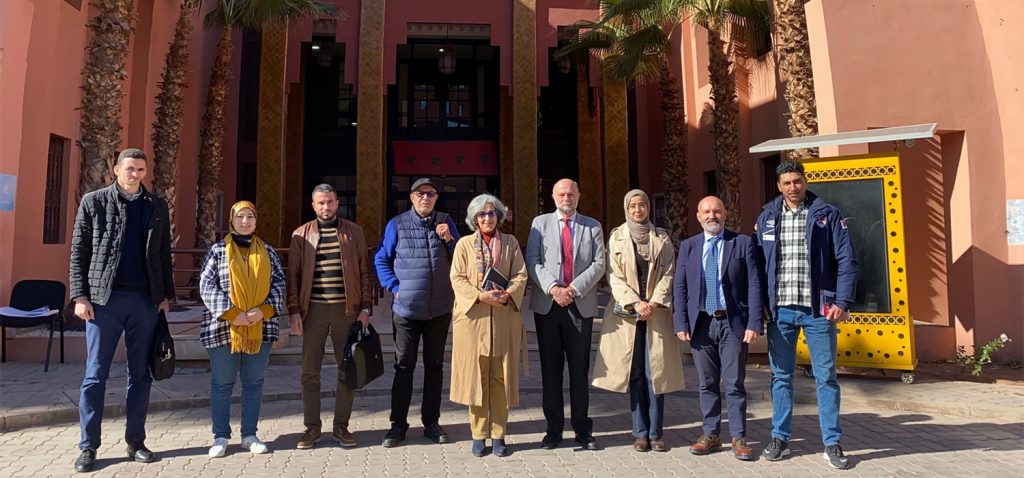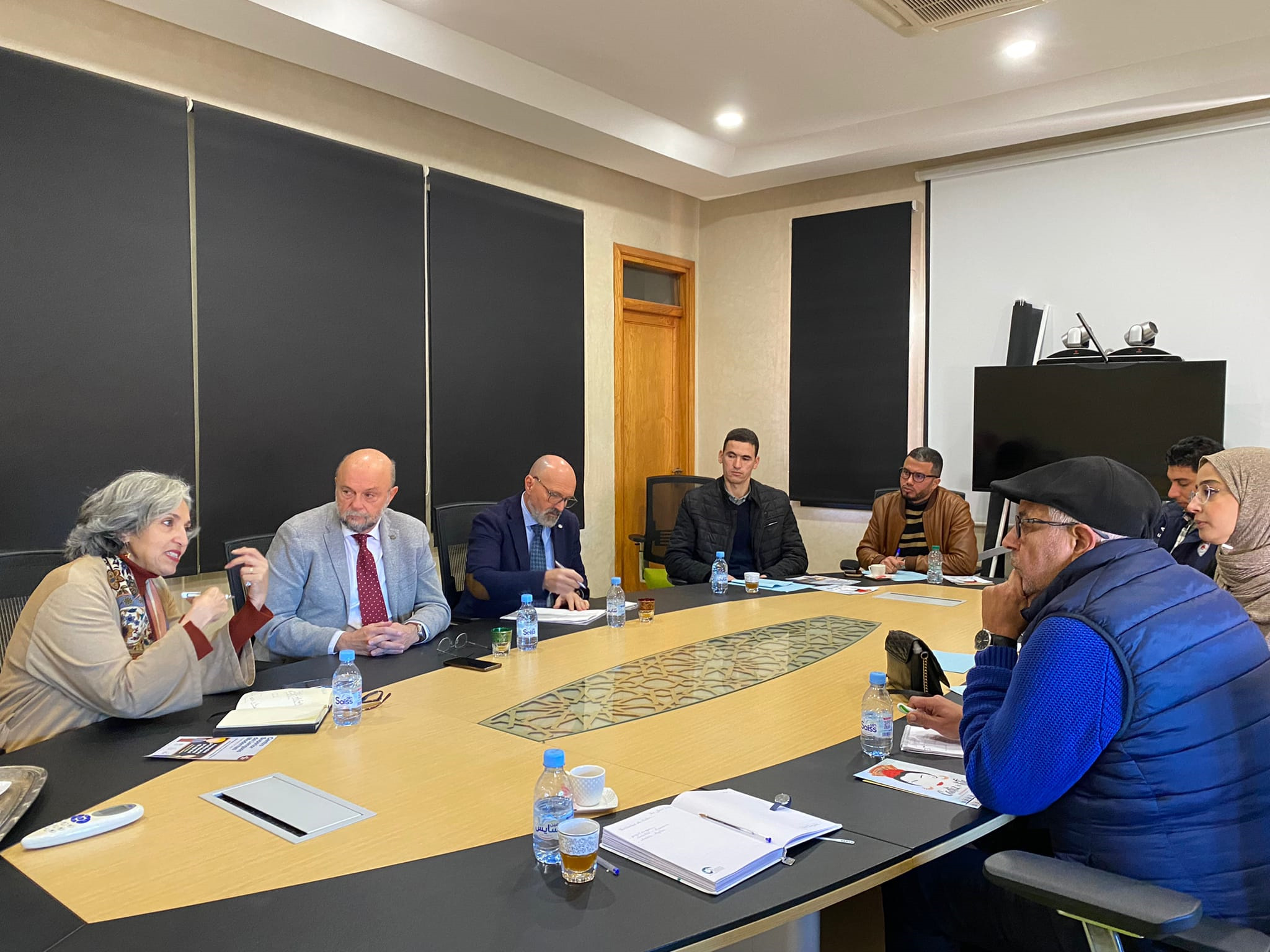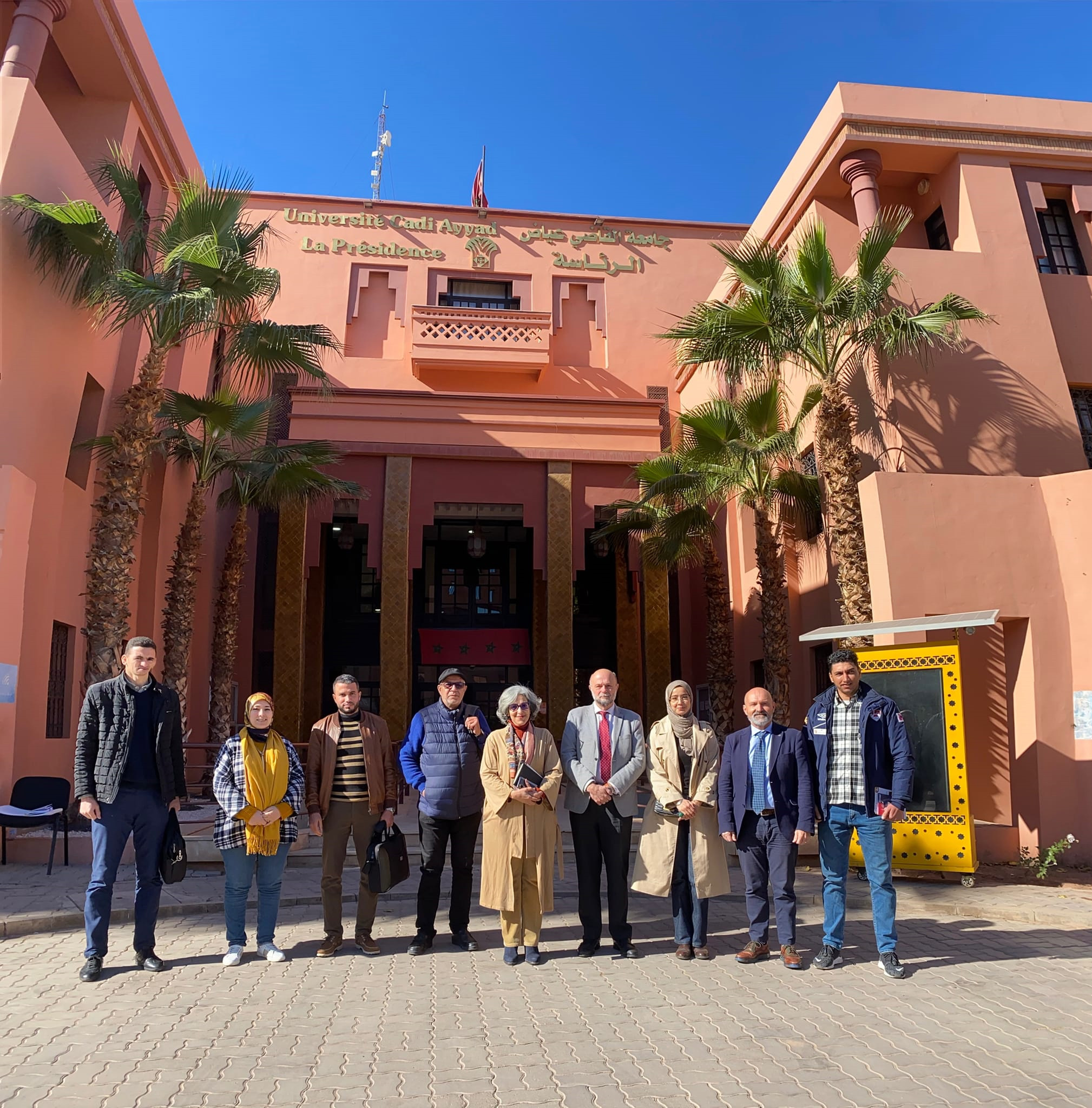
The two academic institutions will collaborate in teaching and research activities in different fields of knowledge, as well as in language training in Spanish.
The Vice-Rector for Internationalisation of the University of Cadiz, Rafael Jiménez Castañeda, and the General Director for Language Policy, Javier de Cos, recently held a working meeting in Marrakech with a delegation from Cadi Ayyad University, headed by the Vice-Rector for Scientific Research, Cooperation and International Relations, Fatima-Zohra Iflahen, and composed of a representation of the teaching staff of the Spanish Department and those responsible for the City of Languages and Cultures of this Moroccan public institution of higher education.
It is one of the largest and most prestigious universities in Morocco, in terms of both science and infrastructure. Founded in 1978, it specialises in engineering and scientific research, and has 100,000 students.
At the meeting, both parties agreed to sign a framework agreement that will serve to host specific agreements in areas of study and research in different branches of knowledge such as archaeology, education, philology, circular economy, renewable energies, water and waste treatment, tourism, electron microscopy, etc. It has been proposed to work in areas such as double degrees, doctoral co-supervision, teaching innovation, volunteering and international cooperation and student and staff mobility.
The Spanish department was inaugurated a few months ago in Cadi Ayyad. The Cité des Langues et des Cultures will open in September. In both cases, the Moroccan university is interested in the methodological training of its Spanish teaching staff. The new design of university education in the neighbouring country establishes that students, in all specialisations, must study three foreign languages: French, English and Spanish. In the case of Spanish, there is special interest in Spanish for specific purposes, towards which interest has shifted from literary and philological Hispanism. The University School of Modern Languages (CSLM) of the UCA will soon offer an online introductory workshop on the methodology of teaching Spanish as a foreign language. Contacts have also been initiated to establish an exchange programme for language assistants, involving Spanish, French and Arabic.



